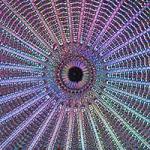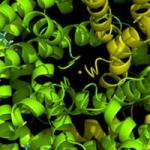
Niraj Harish Tolia, Ph.D., FASTMH
Senior Investigator
Host-Pathogen Interactions and Structural Vaccinology Section
NIAID/DIR
Research Topics
The mission of the Host-Pathogen Interactions and Structural Vaccinology Section (HPISV) is to develop potent and durable vaccines through structural vaccinology by defining the molecular mechanisms required for infectious disease pathogenesis and elucidating the fundamental phenomena necessary for long-lived protective immune responses. We utilize protein design, structural biology, immunology, vaccinology, microbiology, and biophysics to achieve these goals.
Infectious disease vaccines could be significantly improved by structure-guided design of immunogens, which enables precise targeting of well-defined epitopes that elicit protective responses, while also limiting immune responses that are non-protective or interfering. Our group pursues vaccine development by conducting research in three areas: 1) host-pathogen interactions; 2) neutralizing antibodies; and 3) structural vaccinology for infectious diseases. Through structural, functional, and mechanistic studies, we define critical host-pathogen interactions and the mechanisms of protective antibody neutralization. We use structure-guided protein design and structural vaccinology for malaria and viral diseases to develop potent and durable vaccines and therapeutic interventions.
Biography
Dr. Tolia became the Chief of the Host-Pathogen Interactions and Structural Vaccinology section in the Laboratory of Malaria Immunology and Vaccinology in May 2018. He is a tenured Senior Investigator in the Division of Intramural Research, NIAID. He has pioneered the structural and biophysical studies of host-pathogen interactions, antibody neutralization and immunogen design for malaria, and has recently expanded his efforts to address pandemic viral diseases. A major goal is to define how processes required for pathogen survival are mediated and can be exploited to develop vaccines, therapeutics, and diagnostics. His laboratory uses the tools of protein design, structural biology, immunology, vaccinology, microbiology, and biophysics to develop potent and durable interventions for infectious diseases.
Dr. Tolia received his B.Sc. from Imperial College, and his Ph.D. from the Cold Spring Harbor Laboratory School of Biological Sciences as a Leslie Quick Jr. Fellow. He began his independent career as an Assistant Professor of Molecular Microbiology, and of Biochemistry and Molecular Biophysics at Washington University in November 2007. He was the recipient of an Investigator in the Pathogenesis of Infectious Disease Award from the Burroughs Wellcome Fund and is a Fellow of the American Society of Tropical Medicine & Hygiene (FASTMH).
Memberships
Fellows of the American Society of Tropical Medicine & Hygiene (FASTMH)
Selected Publications
- Tang WK, Salinas ND, Kolli SK, Xu S, Urusova DV, Kumar H, Jimah JR, Subramani PA, Ogbondah MM, Barnes SJ, Adams JH, Tolia NH. Multistage protective anti-CelTOS monoclonal antibodies with cross-species sterile protection against malaria. Nat Commun. 2024;15(1):7487.
- Tang WK, Coelho CH, Miura K, Nguemwo Tentokam BC, Salinas ND, Narum DL, Healy SA, Sagara I, Long CA, Duffy PE, Tolia NH. A human antibody epitope map of Pfs230D1 derived from analysis of individuals vaccinated with a malaria transmission-blocking vaccine. Immunity. 2023;56(2):433-443.e5.
- Patel PN, Dickey TH, Hopp CS, Diouf A, Tang WK, Long CA, Miura K, Crompton PD, Tolia NH. Neutralizing and interfering human antibodies define the structural and mechanistic basis for antigenic diversion. Nat Commun. 2022;13(1):5888.
- Dickey TH, Tang WK, Butler B, Ouahes T, Orr-Gonzalez S, Salinas ND, Lambert LE, Tolia NH. Design of the SARS-CoV-2 RBD vaccine antigen improves neutralizing antibody response. Sci Adv. 2022;8(37):eabq8276.
- Ma R, Lian T, Huang R, Renn JP, Petersen JD, Zimmerberg J, Duffy PE, Tolia NH. Structural basis for placental malaria mediated by Plasmodium falciparum VAR2CSA. Nat Microbiol. 2021;6(3):380-391.
Related Scientific Focus Areas


Microbiology and Infectious Diseases
View additional Principal Investigators in Microbiology and Infectious Diseases

Biomedical Engineering and Biophysics
View additional Principal Investigators in Biomedical Engineering and Biophysics


This page was last updated on Thursday, August 21, 2025